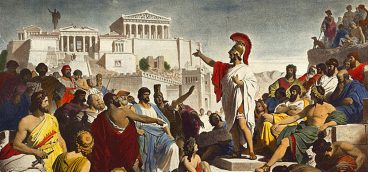Only the Top Two Percent

For readers who missed part 1 of this series of posts, I am summarizing a fictional novel written almost forty years ago.
Two days after receiving Grace Atkinson’s posthumous note, George and Jenny Leader found themselves in the Roosevelt Room across from the Oval Office listening intently as Dr. Michael Solomon discussed the issue of human capability.
Also in the room were Gen. Green, several other close advisors to the interim president, and George Aiken, the long-serving senator from Vermont. George Leader had a soft spot for Aiken because the Senator had, in 1966, advocated the only sensible policy on Vietnam that Leader had ever heard: “Let’s declare victory and go home.”
While the equipment was being set up in the room, Dr. Solomon gave the Leaders and their advisors a brief history of human intelligence research, including the bitter controversies over so-called group differences.
Solomon emphasized that he’d never had any research interest in group differences, but that he had a keen interest in the quality of the data about human intelligence that was available to scientists. “If that data is biased against certain groups, our work becomes impossible,” he said.
As a result, Solomon’s Institute had pioneered work on directly measuring human “capability”—Solomon disdained the word “intelligence,” believing that it had been corrupted by the “group differences” research.
“We believed for a long time that human capability was directly related to the number of synapses a human brain had, per unit of volume.”
Solomon explained that volumetric assessments had to be made because men’s brains were bigger than women’s and large peoples’ brains were bigger than small peoples’ brains.
“But even though we got better and better at measuring synaptic density, that density correlated less with other measurements of human intelligence than we’d hoped it would. Something was wrong.
“What turned out to be wrong is that capability depends not just on the density of brain synapses but also on how efficiently those synapses work. That was Ivan’s key insight.” Solomon nodded towards Dr. Ivan Kuznetsky, a neurologist at the University of Illinois.
“In other words, ladies and gentlemen,” said Dr. Kuznetsky in his thick Russian accent, “it is the combination of high synaptic density and synaptic efficiency that leads to exceptional human capability. It is necessary to measure them both.”
Dr. Solomon explained further: “The human brain processes information via chemical neurotransmitters and electrical signals. The more synapses you have, and the faster those synapses can process the signals, the more capable you will be. We’ll demonstrate on a volunteer. Who’d like to go first?”
Solomon had picked up what looked like a stainless steel yarmulke with a spit curl in front and a rat’s tail in the back. “Oh, come on,” he said, it won’t hurt!”
A few hands tentatively went up, but Jenny Leader said, “What exactly is it that this gizmo does?”
“It measures your capability quotient, or CQ, extremely accurately,” Dr. Solomon said. “Your ‘IQ’ if you will, but in a way that isn’t culturally biased.” All the hands went down.
“What the hell,” said Senator Aiken, “I’ll do it. I’m so old [he was then 76] that my IQ probably isn’t even detectible.”
While everyone laughed, Solomon and Kuznetsky put the gizmo on Aiken’s head and pressed a button. A small hum could be heard and then the readout, glowing green, read “137.”
“Pretty good for a politician,” Dr. Solomon joked. “Less than 2 percent of the population has a CQ higher than that.”
“Well, hell,” said the Senator, “if I’d known I was that smart I wouldn’t have wasted my time on politics!”
“Dr. Solomon,” George Leader said, “I don’t know how much you know about Grace Atkinson’s position paper and her letter to us. Grace insisted—basically, with her last words—that we consider modifying the Constitution to eliminate the ballot as the way of selecting our public officials. We would substitute selection-by-lot.
“In addition, Grace suggested that only citizens age 35 or older and whose IQ—excuse me, whose CQ—is 130 or higher should be in the selection pool. This fancy machine of yours would tell us which citizens qualify and which don’t.”
“In Grace’s defense,” Jenny Leader said, “eliminating people with CQs below 130 wasn’t intended specifically to raise the level of intelligence or wisdom of our political leaders. It was simply intended to avoid having very, er, slow individuals in important political posts.”
“That’s right,” George Leader said. “Although many people don’t want to believe it, America’s politicians are already far smarter than the average citizen. It’s the system that corrupts them, not lack of brain matter.”
Jenny added, “What Grace was trying to eliminate was the corrupting effect of political contributions, the grandstanding, the playing-to-the-crowd, the insincerity, all the things that come from having to get elected and reelected.
“Instead, ordinary citizens would simply be selected by lot, would serve their time in office—one term only—and then would go back to their private lives. In the meantime, short of actual bribery, these citizen-officials would presumably do what they thought was right.”
But Willy Green snorted. “Look, folks,” he said. “I understand that we all wanted to honor Grace’s last wish. But we’ve spent many, many hours discussing this selection-by-lot idea, listening to Dr. Solomon and his team, and arguing amongst ourselves. And for what?”
Gen. Green glanced around the room and then answered his own question. “Dr. Solomon has just told us that a CQ of 130 would put a person in the top 2 percent of all American citizens. Let me do the math for you: that means 98 percent of citizens would be left out in the cold.
“However theoretically interesting Grace’s idea might be, any idea opposed by 98 percent of the voters will be dead-on-arrival. Am I missing something or are we wasting our time here?”
“You’re right, Willy,” George Leader said. “I’m willing to concede that maybe Grace Atkinson and Arthur Schopenhauer are right. If we could somehow implement this selection-by-lot idea, we might well achieve a kind of utopia-of-governments. But I agree with Willy—nobody will buy it.”
“Vermont might buy it.”
Everyone turned and stared at Senator George Aiken.








